PHP Deprecated: Creation of dynamic property Joomla\Registry\Registry::$default is deprecated in /home/authorsinfo/public_html/libraries/vendor/joomla/registry/src/Registry.php on line 937
PHP Deprecated: Creation of dynamic property plgContentLayerslideshow::$context is deprecated in /home/authorsinfo/public_html/plugins/content/layerslideshow/layerslideshow.php on line 38
PHP Deprecated: Creation of dynamic property SocialPoints::$string is deprecated in /home/authorsinfo/public_html/administrator/components/com_easysocial/includes/dependencies.php on line 123
PHP Deprecated: Creation of dynamic property SocialBadges::$string is deprecated in /home/authorsinfo/public_html/administrator/components/com_easysocial/includes/dependencies.php on line 123
A GHOST FOR GINGER LEE
I'm going to throw this out to my audience knowing this is only the beginning of the last narrative in my GHOST RUNNERS series. Let me know if you like it, or just let it be. It's going out free from me. Now, if a publisher or agent wants to make whoppee with me, that's another story. But first draft promise is to my audience here.
"Each must journey for himself to the country whose margin lies just beyond the bounds of our everyday life, and yet is as strange and as vast as the sea."[1]
CHAPTER 1
Dearest Ruby:
He calls it a diagnosis but how can I trust the physician who hears a cash register as he puts the stethoscope to my heart? It is funny, though, how the worn down infrastructure can bring the whole building down. Time will pass, and we are but a breath, the last gasp of a dying wave upon an endless shore. So just in case, I take the coward's way out, by writing, cause I'm still not able to talk to you about this directly. You see, I am ashamed.
The story involves secrets I kept from you. Loyalties even misguided honor. It is about a blood oath of confidences, too scared to tell, too much grief to carry. Or worse. I thought: boys would go out with you just to tell their friends they made it with that girl. They would think of you as having the blood of a killer no matter how gentle you were.
But secrets cannot be held even in scared hearts, not forever. The ball must be kept rolling. Ruby, some of our patriarchs was heroes, others demons-- the wisdom or folly of the fathers is often just a bounce one way or the other. In that world of light and darkness, courage to carry on is born--a strong hand to guide, a mother's love, a dunk shot.
Looking back into our own history, I realize I was blessed with many gifts. Yours, Ruby, is the most wonderful gift of all. That is why I cannot leave with blood, in the figurative sense, on my hands.
I am, in my declining years, suffered to be a wordsmith—to doctor one's thoughts and transform them into sweet prose. I can be a storyteller or a liar, who would know which? But I had both my mother and father's blessings, and they taught me there were consequences to the latter.
Your grandfather, my father, never lied. Nor did he ever talk about his family--about his mother or father, or the brothers and sister that came and went. Once a year, he lit candles for them. Cloaked in the traditional white shawl, he mouthed the Kaddish, the prayer for the dead. With my silences, I guess I am a lot like him.
I knew some of their names. The candles burned a twenty-four hour flame for my grandmother, Fannie, and my grandfather, Joseph, after whom, had my father kept to the Ashkenazi tradition, I would have been named. My father skipped that by naming me after my long forgotten great-grandfather. I think he wanted to go very far away from the shame my grandfather had caused him. He was always silent about Joseph and the whole family that settled in Chicago. The word was that Joseph was a drinker and very unpleasant. Eight children had been officially born, but there were others. Some were assumed lost to the heavy weight of infant mortality deaths. But ours, though recorded as such, stayed very much alive. Our side of the family moved to New York during the days of prohibition when many large families were separated by poverty or drink.
About my given name—it was Jacob, nicely turned by my father to Jack. That is my middle name now, spun by your grandma, coming off 'Twilight,' the anesthesia she used during my birth, circa nineteen fifty-two, to the nickname, Jackie. I was conceived Jack Rubenstein until mother, once again, had a flying fit. That was how I became Robert Jack Rubenstein. By the time she really awoke, G-d bless her soul, your grandma did not remember my name. When my first novel, Ghost Runners, was published, I decided to drop the Jack and to use Robert Rubenstein, instead. My family calls me Bobby, but my friends complicated my life. To this day, they still call me by the family nickname...Ruby.
I thought I'd be cute by calling you by that name, flat out. What a burden for you to carry: Ruby Rubenstein. I'm sorry about that.
After the first printing of the book, and its most surprising success, I thought I would return to the name that would be on my stone in a quiet corner of a tree lined street in an old cemetery in its due time:
Jack Rubenstein.
About those candles--Joseph's does not stand near anybody's. Neither would the solitary one that burned only once for my uncle, who also had my own name. Strangely, for I thought he was still alive when my father lit one for him.
I did not know then that my uncle Jack had already gone and changed his name. That pale, temporary glow that lifted from the glass, first shone like ash, two days after the President, John F. Kennedy, was assassinated in Dallas.
I also did not know, for I was still a child, that Jack had changed his name to our family nickname, which is your name as well: He was Jack Ruby.
I remember the drapes were closed and black paper covered the mirrors. I was ten years old and that was the day of firsts. It was the day my family went into mourning in the ritual Jewish way, not for family, not even for a Jew, but for our beloved first Catholic president. But it was two days later that my father lit the lone candle and the only time I saw him cry. He said he lit it for Uncle Jack, but I did not follow the dots that are now so obviously connected with that part of the nation's common sad history. I was too young to understand when the newscasts blurted out what sounded like my own name...
"a man named Luby or Ruby has shot the President's assassin, Lee 'Harold' Oswald, in Dallas this Sunday morning, November 24, 1963 at 10:21 Central Time. Quoting him, Ruby said, 'You killed my President, you rat,' before pumping a bullet into his abdomen. From the wires now we are told the gunman's name.
Jack Rubenstein. Jack Rubenstein has allegedly fired the gun and sent this sad city into more chaos and mortal fear. How much suffering is our nation to bear? "
And, when a young reporter, Dan Rather, played it over and over again... that they were talking about my uncle Jack. My only thought: why had my father lit a candle when Uncle Jack was still alive?
Now we will show you the film of Oswald being shot, still-framed, watch the hat in the right-hand corner of the frame. Watch Oswald's eyes as they seem to catch the eye of the assassin [Ruby]. His head turns, he looks at the assassin and his eyes never leave him. The assassin moves in ... and a few inches from {Oswald's} abdomen, fires a shot."
In the corner of my parent's room, on the high holy days, memorial candles lifted their sad flames by the window near the credenza. Enclosed by embroidered mahogany, that piece held a pocket watch, a camera, a Luger with black holster-- my father's spoils of war. There were also his brother's gifts and photographs of our often estranged, but large family. My grandfather was born in Sokolov, a town near Warsaw. In the 1890's he joined the Russian artillery and became a lifetime drinker, and often Fannie was driven crazy from despair. Eight children or more and a drunken husband can often do that. Fannie had a fishbone delusion for many years. She eventually had her trachea removed, but that offered her no relief. A great unseen bone was choking her still.
The centerpiece of our trophy case was my father's war medals in the battle for the Rhine. Since Uncle Jack moved around a lot, he left his sharpshooting medals and World War Two regiment patches there as well. The day my father lit the candle for Uncle Jack, on Sunday, November 24, 1963, he opened the credenza once more to remove the medals and a bunch of fine, but frayed papers, a photograph, and one lone record—an old, bizarre seventy-eight with a black label, with preserved plastic coverings, off the shelf. It must have had sentimental value only because it held a fatal bullet-sized hole that stood inelegantly at the far corner of the grooves. There was a round disk, medals and a soiled manuscript in gilded lettering denoting some refined printing process that came about over a century ago. It was carried away past the black crepe paper drapes and the overall gloom.
Our secrets were so well kept—I didn't even know we had any. Even when knocks came to our door that kept hammering us awake, sometimes night after night, I never made the connection.
"Just some Fuller Brush man," my father said.
He never let us answer the door or hear the words these 'darn salesmen' said...the real words they said about the lies they wanted to tell about us...words about the big picture from the family's point of view. Writers and newsmen, thrill seekers and the like. In my mind, Fuller Brush was the most aggressive company in the world.
I thought my family so dull and uninteresting that I never thought I'd write one word about them. Wanting always to be a writer, I sailed the seas with Nemo or won spectacular cases in the courtroom with Perry Mason. An avid sports fan, I followed my father, a gambling man, to sporting events. Sometimes Uncle Jack came along with my dad and me. He had a strong opinion, liked to handicap the game. A gambler like my father, Jack would dictate what team to bet, even what score the final would be. He often seemed nervous, hyper-vigilant. He looked around as if he was being followed, or to stop a disturbance, where no trouble had been, even during the playing of the National Anthem. If a loud-mouth would be talking, Uncle Jack took him to task with his own loud mouth and quick hands. Once, he tweaked a man's breast, through his clean white shirt, for not standing fast enough, or for not removing his hat. It was nineteen fifty-eight. Though I was only six or seven years old, I remembered Uncle Jack lived in California and had an idea about opening up a club somewhere. He kept talking to my father about horses, and said the place would be named 'Carousel.'
Living in other people's rented space, usually in some rectangular cubicle apartment with uncontrolled steam piping unhealthily through the radiator vents, forty or fifty feet above the ground, your grandma cried about our ancestral home, a place, she said was mortgaged to a horse's ass at Belmont or Saratoga Raceways.
My father took me to watch the Dodgers play at Ebbets Field or to the old Madison Square Garden on Fiftieth Street in Manhattan to sweat out the point spread during the first game of an evening basketball doubleheader. We saw Bob Cousy, Dolph Shayes, Sweetwater Clifton, George Mikan, and the rest. If my father beat the point spread, it was a good night. Otherwise, there was this edge that made me wish I had stayed home. But heaven, win or lose, was centerfield in Yankees Stadium after the baseball game when we walked on the field and headed through the outfield gates near the monuments for the 'L' to take us home. I ran around the outfield and slid until I choked from dust and kissed the dirt. Centerfield was Mickey Mantle territory.
I was about six, dearest Ruby, and was alone only once with Uncle Jack. It happened in Coney Island when Jack took me on the Parachute ride. I always thought it was the parrot shoot ride, and I was scared to death. In his own way, Uncle Jack tried to comfort me. I remember his muscular arm around my shoulders, his right hand patting me as the parachute began its slow, upward climb. Years later, I would remember that right hand, the chute fanning over the dizzying drop below like a billowing white cloud, and the, the ocean turning upside down, the rides, the wonder wheel, and the cyclone spying on us all the way down. Descending breathless, we rode with Uncle Jack's fingers tightening the grip. He was giggling, his dark hat somehow stayed on his head. He talked with a high pitched, slight lisp.
"Bobby, you like thisss?"
Each finger danced toward me, as if he were pressing keys on a typewriter. Much later, I'd tried to imagine him squeezing the trigger. The gun, the recoil, and a lone animal, leaping to get off another shot:
"You killed my preshident, you rat."
I imagined him thinking about some unknown dark deed in his near future as he played on me and we soared together through the clouds of his giggle and dancing fingers on the Coney Island parrot shoot jump.
In that way, I became somehow linked to the sad story of a triumvirate of assassination conspiracy theory. But I thought about that only after you were born.
During the years before you came, I never made a conscious connection. Through high school, college, I never knew that Jack Ruby and my uncle were one and the same.
I must have been dreaming through the sixties, the seventies. You see, I swear I never made the connection because I never knew Uncle Jack had gone and changed his name, and later when I saw film footage, I only had some vague recollections. There was that familiar pose; that smile, even the menacing nostrils of the gun shooter and the man I knew who bullied the patrons at the Garden. But I couldn't put it all together, and my father would not allow any questions.
When Jack Ruby shot Lee Oswald, our family went not only into mourning but into hiding from that very day. We shut out our memories like a plague or dark spirit. The angel of death had passed our way. My parents thought they were protecting me and I did the same for you, Ruby. But I now know that I robbed you of your heritage and your right to seek the truth. Was that Ruby just another madman, a lone gunman? Or were the streams of visitors, the Seth Kanter's or the Belzer's or the hundreds who profited from conspiracy theories right, those Fuller Brush men and the like? Can I in G-d's name say I know? How could I claim that without being branded a charlatan like the rest? Money is money and I'm a snake oil salesman with a hot name.
So, Jack Ruby had my name and was my uncle, so? What do you have to say that's different to add to the dialogue in any way? There was just an old seventy-eight, not even one of his neat hats, a record of Deacon L.J. Bates who's another fake name and a hole in that as well. And that stereotype, a soiled script and the name inside, in the italicized passages, that of Ann S. Stephans.
Only one person could make any sense of this whatsoever. She knew Jack Ruby when he was a street tough in Chicago. The years were not kind to her after the assassination and she languished in St. Elizabeth's Psychiatric Center in Washington D.C. for manic depression a host of maladies about what she had to carry alone in her heart. Her name was Ginger Lee, though she demanded to called by another name during her incarceration. I thought about her during my first read of the quaint manuscript. Some words, some description would have import to me, but at the time I just thought I was aimlessly about the manuscript, like a creeper, not really part of the … history.
________________________________________________________________________CHAPTER
A Navajo man with a weather-beaten dark face and hooked nose, Jo Elm's eyes were bloodshot. Tourism was sharply down, and he hadn't expected a customer that Sunday. He had spent the weekend in ceremonials, blessings, and sweat lodges west of Taos. In a way, he had not come back from there. Rattling his gourd in the front of the jeep, Jo Elm jerked back and forth and sang mystical chants even in front of his new customers.
He said he wanted cash, one hundred twenty dollars for two. It would be a three hour journey over rock and mud and occasional quicksand through impossible climbs, hidden paths, herds of wild horses, and cows out for grazing. The Rock Canyon was still very much alive, but tourism was down. Jo Elm had been doing tour work for over twenty-five years. There was a time he would make ten thousand dollars a month...cash. Now, once, maybe twice a month, some crazy American who wanted to feel he knew what an Indian was like would pay him money to see Tsegi through Navajo eyes. Back from the ceremonial west of Taos and being part of that sorry business at the intertribal festival in Gallup, Jo Elm's mind was already exploding when he saw the man and his female companion who were "haunted by ghosts."
Sure, Jo Elm said he respected the ghosts and the kachinas, the spirits that came to give and take. He said the spirit of the Dine began in prayer and song. In the beginning the Navajo had wings to fly; they flew between the five worlds as air spirits in the wind. The first four worlds were the colors black, blue, yellow and white. The fifth world was the reflected world seen today. It glittered with the promise of gold. The holy people came to greet the wind spirited people. They came together to recreate beauty and harmony. The ancestors of the Dine were part of the trees, the clouds, the waters and the mountains.
He was descended from four clans, one of which came from Canada. But really there was no pure Dine. During hard times, they had enemies who took their most valuable resources. The enemy tribes wanted their livestock, their harvest, and their women and children. The Spaniards also used them as slaves and the Americans as servants. But the Dine kept to their culture and old ways.
"We will be like a rock a river has to go around."[2]
The Americans liked to use the Navajo because the people knew the land. Not like the Americans who only knew places, general geography. The Dine knew every hill, every stone, and every ridge.
To the people who still lived there, the canyon was known as Tsegi, Holy Land. Spider Rock was their holiest site. It was there that the hero twins Monster Slayer and Child Born of Water visited the wise Spider Woman. She gave those gifts and special songs to take to Father Sun, and to Mother Earth. She also taught the women how to weave.
The Dine lived among the Anasazi in the old world. They learned from them how to make great cities. Using their masonry, they built publitos on the high cliffs of the Tsegi. Clans of the Navajo, the Dine, joined together from the pueblos. In Taos, New Mexico, the Navajo were known as the Edgewater, and from Jemez, the Coyote Pass Way. Descendents, they were thought to be, even of Ishmael, and through him, had Semitic roots. The Dine were the people who came to plant for the harvest, to be blessed by the Kachinas. They stayed within the borders of the four sacred mountains. The Tsegi, in the Rock Canyon by the Chacos Mountains was the spiritual fortress of the Navajo.
Coronado and the Conquistadors brought forced baptism and took what resources they needed. Many of the subsequent Navajo raids along the Rio Grande were in retaliation against the Spanish, the Mexicans and the tribes: the Utes, Shoshonis, Kiowa, Comanche, Apache, and Peyutes who carried on slave raids against the people.
Into the 1860's when a great emancipation was bringing freedom for black people who came to America as slaves, the people who were born there indigenous and free, were being handpicked, and in many instances, forced to become like slaves. By 1860, most New Mexican families owned at least one Navajo slave. Women were forced to weave slave blankets at the whims of their masters. The Navajo's raids were in retaliation for the outrage.
So when Jo Elm talked about his clan, he did so with the uncertainty that came from the higher stories told about his people and the mixed blood that was forced to flow from its veins. The Salts were on Jo Elm's maternal side. His mother told the story when the grasses were high and the land was greener. It would take much time for the planting and the harvest to compare with those better days when the orchids were blessed before the soldiers came. She told him her grandmother's name was Tall in the Mud. His father was from Cottonwood over three hills away in the highway and by the standing white rock in the mountains adrift with sandstone.
His father used to drink a lot. One day, he told him, he was out walking between the standing rock and the juniper pine that could be seen from the Hogan in the field where his cousins and aunts stayed. He knew exactly where he found with full body armor, a sword and a skeleton of a conquistador. He visited the place but did not touch the remains. It was bad medicine, he said.
"My grandfather said the white man poured concrete over the earth so the earth can't breathe anymore," he said.
In his jeep, Jo Elm seemed to be half-asleep from the late night bender. He didn't make eye contact, but pushed impatiently with his hands for the pair to get into the jeep. His hands were large and strong as were the rest of Jo Elm's features. Wearing a black T-Shirt that said, Dine Nation, Jo Elm had grey-black straight back hair tied into a pony-tail.
The word curmudgeon might apply for his manner was gruff but his grip on reality was unmistakably clear. His own eyes half closed Jo Elm said:
"Ya'ha'tee. You o.k. you look tired."
"I am very tired," the man said.
His sunglasses hid his eyes and since Navajo custom did not enjoy eye contact anyway, both had to feel their way toward each other. The woman with him was wrapped in scarves and blankets. She walked very lightly as if she did not have a particular hold on the earth. A hint, only, of a familiar fragrance, alerted Jo Elm to the feminine presence. The woman silently went into the back. Jo Elm saw her eyes for a brief moment. In the half light of morning, something about the girl was peculiar. The irises did not match.
"Bad Sleep, eh? Come, inside. You have water? Put in the back."
"You want me to sit."
"In the front."
There were many tour guides who waited like coyotes outside. They circled around the parking lot nervously waiting for white customers.
"Any of those guys talk to you?" he asked, with one eye, eyeing one in a black cowboy hat.
"No."
"They'd get no food, if they did; nada."
Some were so thin they already appeared to be starving. One skulked away from the jeep. He dressed in black and wore a wide brimmed black sombrero.
The tourist had to go with Jo Elm into the visitor's center to get a permit. The site had Indian artifacts, bones, bits of Navajo clothes, blankets. A park ranger or authorized guide needed to accompany him. Known in modern times as the Canyon D' Chelley National Monument, Native Americans in park uniforms wrote out a pass. They knew Jo Elm by his grunts and grizzly "Ya'at'ee," Navajo for "Good-Morning.'"
He saw a friend outside. Jo Elm raised his hand palms up.
'"How."
"How," the man answered.
"I want to know what that means," the tourist said.
Jo Elm answered, but did not laugh.
"It's a joke."
The tourist bought a tape. He wanted to hear some Indian music for the long trip. He asked for advice, and the parks worker shifted over, lowered her glasses and came up with one. The first song was a Navajo rendition of "God Bless America."[3]
The canyon, he knew, was rough, muddy, unmarked roads through agonized, twisting paths between mountain and trees. Many vehicles were caught in the mud or in the flash flood storms that often came suddenly. Just that week, a tornado was seen rolling into the fields around Cottonwood. He sat in the front and braced himself with tight fists. He was glad to see a handlebar for him to hold.
One of his hands had a wrap around bandage for his right wrist.
"That singer, she's O.k. I know her whole family. Roy and Curtis. Tao and Dewann. I'm a little better."
To prove his point, Jo Elm played his own tape.
"Composed, produced and written by me."
The chants began as Jo Elm drove the jeep past the sweet sage on the side of the muddy roads into the yellow fields toward Spider Rock. Jo Elm said the rules by rote.
"No taking pictures of any live person. You see dead people, you decide. No disturbance of artifacts, plants or livestock."
He pointed out the brush willows along the way on the side of the choppy mud water. The water, he said, lied four feet underground and provided nourishment for the cottonwoods and the pinions and the plants that grew to bring good medicine. Later came the salt cedar and the Russian olive trees. That yellowish vine was usually a mystery to Russian tourists. There were no olives in Russia. And some said the invasive trees sapped more water than it saved.
Jo Elm had a fine singing voice. Navajo words rose and fell in special cadences. The first verse was higher than the rest. As the song on the tape changed from Navajo chants to English words, Jo Elm suddenly became awake. He had a gourd or rattle that he stopped the jeep to play. On either side a three foot mudslide made the goings uncertain. But Jo Elm could not care less. He shook the rattle with both hands, his small black eyes drifting toward his prominent nose and the suddenly appearing burrows in his forehead. At first, he seemed in control of the gourd. His body shook rhythmically with the bead like sounds. Soon though, the rattle seemed to shake him. Up and down, Jo Elm fell into a swoon. He no longer saw his paying guest. Then, with his own music still playing and shifting in his seat, he pointed a long, lone finger toward the tape deck and said his own words.
"Mommy loves you. Daddy loves you," were the words Jo Elm sang.
The patched mud tour had a jerky ride reminiscent of a roller coaster at an amusement park. But that place was not for laughs. The twists and turns into and out of mud, some said to be quicksand, took an expert driver to navigate. He passed a group of natives bathing in the shallow waters. When they saw the white man, the oldest gave a hostile glance. Up a hill at five miles an hour, Jo Elm came tumbling down. He was in control, even when the vehicle was stuck for a while between the cavernous cliffs and the muddy road awash with the rush of silt and water.
Then he stopped the jeep again. He shook his upper body in the rhythm of the gourd. He sat that way for a time until the gourd moved him again. His body shook to the furious speed the gourd demanded. Spent finally by exhaustion, Jo Elm sat still for quite a while, his eyes closed.
"I want to hear about," said the Tourist, looking into the back seat, and then whispering, "Christopher "Kit.""
Jo Elm seemed to ignore him. He listened intently to his own song. At the right moment, he sang and mimed the words he heard. He pointed with two hands to his eyes, his heart, and pretended sleep with his palms poised under his chin.
"Look with your eyes, daddy, hear with your heart, mommy. Under the sky, sleep in the wind."
Jo Elm wanted the tourist to join in the chorus, but he was too deep into his own thoughts. Only the woman in the back seat heard the words as if in a dream. When she heard the name Christopher "Kit," she wanted to spit, but she had already fallen into a deep sleep near the water jugs.
"Outside. No, the other way."
He wanted his customer to stay in the shade.
"Now, listen with your ears to the land," he said.
His face was downcast, his eyes deep inside, his body not stirring.
The tourist was glad to hear the stillness of the high sandstones and the darkened cliffs that hid from the sun. In the mouth of the canyon, he searched the volcanic core of Black Rock Butte and the spires of the Chuska Mountains that skied toward blue horizons. There was the sweet smell of sage, but not a whisper from a cottonwood. Even the flow of the water seemed to cease. Jo Elm had brought with him the peace the tourist had sought here at the mouth of civilization, in the dome of the cathedral of the high cliffs. With no elevator, ancient civilizations carved out a life, leaving pictographs, hundreds of feet high. How could they transport themselves even higher? In the distance, the white house, la Casa Blanca, loomed between straight cliffs that skied to a precipice. Bones had been discovered there. The climbers held ceremonials in the round tivas outside their homes. By degrees, corn, squash, peaches were grown from people who began to harness the life flow of water.
The time for him was well spent in silence and the aftershocks of the events that had happened in the weeks, even the months and years that had come before. He gained strength from the withered face of his host whose eyes were closed and faraway. Jo Elm had been raised in this place. His were the ancestors still palpable. The dizzying domes with muted orange earth tones interspersed with small greenery that jutted like hair from a sculptured face seemed to be a mirage. How did life transport itself from the mouth of a small stream that had flowed for millions of years? The master builder was the sea that nourished and transformed the beds of mud into the high cliffs of surrounding stones. Not every tone was the same. Hidden cliffs or those more saturated had dark almost blackened orange faces.
He knew he wasn't the typical tourist. He had not bathed in days and his jeans were as faded as any smile he had had when he first came to the southwest. Only vestigial was his want to still fulfill his initial purpose. He wanted to find the Indian ways, but it had already cost him his passion and his soul.
He felt an itch on his nose. A horsefly had found a temporary home, but he did not want to bother Jo Elm's concentration. The silence that came from the earth was profound. Would he ever return east, broken with nothing to teach, less to learn? He came west to write a syllabus. He came west for one last taste of love. He was the cop who botched his last arrest, the professor of justice who was humiliated by a woman. Would he ever go back, injured and insulted? And her, he thought, holding back tears. But he did not look into the jeep where she was sleeping. That girl, a half-breed was like a rare coin. If his hunch about her was right, he had found gold.
Jo Elm's hands were closed into a fist. His eyes tight, he was gaining strength from the land and the surrounding cliffs. His straight hair was as thin as the willow brush or sage, the bundles the Natives carried to purify themselves. But nothing about his gruff manner offered any hope or serenity. His was the anguished brow of a servant, not a master. But Elm knew the way.
"The spirits love you. Kachinas love you. The sacred mountains love you," he sang. Echoes resounded in the canyon walls. Jo Elm's face had exploded with voice, here in the place of the voiceless. It was rock& roll, acapela in the land of his ancestors.
"Why did you leave me, baby?"
The tourist did not understand the irony. Around the white pueblo cliff dwelling was a natural amphitheater. From the fields and the fenced off areas that protected the buildings and artifacts, room for twenty thousand could easily be made. Jo Elm was in spiritual heaven.
"Come, I teach you, Navajo," he said, opening his eyes.
"Atastsii bee iinaanii.Now you. Weiyanaa'ahei."[4]
The song was traditional about how corn grows and how there must be harmony between Mother Earth, Father Sky and nature. But the tourist felt ill at ease, distressed before nature. He thought he was suffering from dysentery of the soul. Despite the purity of his surroundings, he was decayed, more dead than alive. He wanted to say her name, to sing, like Jo Elm,
"Why did you leave me, baby?" to hear it ricochet off the celestial stones. But he didn't want to disturb the tranquil sleep of his companion.
"Stand here."
He handed binoculars to the tourist.
"No, thank you."
Jo Elm thought about that. What kind of white man did not want to see a thirteen hundred year old ruin. It sobered him.
"Is she your woman?"
"She's been sick. I've been helping her."
"What's the lady's problem?"
"She's in trouble."
"You're not from hereabouts."
"No, my daughter is. She works back in Gallup."
"Gallup. Lots of trouble came to Gallup the other week."
The tourist changed the topic.
"Binoculars, please," he said.
Jo Elm paused.
"You're in trouble, mister, heaps of trouble."
"How would you know? Everyone's got troubles."
Elm thought, but said nothing. He held fast the gourd with both hands. He said in a sing-song voice, holding and beating the rattle softly.
"Look with your eyes by the hill to the rock where they painted their sorrow on the cliffs: two suns' and one moon, the storyteller said the battle was two days."
The Dine had no weapons in the Canyon de Muerto. It is not a battle, but a massacre site. The Spanish had flat-brimmed hats and rode pintos. They carried lances and muskets. In the name of Jesus, they came with crosses spreading death. Those are the soldiers painted on the walls of the Canyon de Muerto, the Navajo say it is the place where two fell, in the Canyon de Muerto, the canyon of death. They came to kill Navajo, or to make us slaves. But Navajo women and children were safe high in the cliffs and the Spaniards were walking the other way. Then a crazy woman called them back, they say. She cursed the Spaniards. She yelled out to them. She called them blind for not seeing their hideaway cave. Hearing her voice, a soldier climbed the rock talus toward the top of that mountain. Quien sade, who knows what happened next, but maybe she rushed him with hatred. Maybe they struggled and fell. Maybe they were pushed by angry spirits. Maybe by Jesus. But they both fell like flaming arrows and the Spaniards knew about the cave where the people were hiding.
"The Canyon de Muerto?"
Thunder and lightning and bullets rained into the cave.
" You, you have also killed, huh, stranger?"
"I was a cop, when I was young. I had a badge," the stranger said.
"No, you don't fool me with your badges. I don't need no badges," Joe Elm said.
"What are you talking about?"
"I don't need no stinkin' badges," the word, "badges" ricocheting along the canyon walls.
They fell into an impasse, alone in the amphitheater, near the canyon of death. But Jo Elm was smiling into a deliciously private, evil joke. He had been imitating a movie which he did not want to share with his customer. He had remembered another line.
"I know you. You're the man in the hole."
The tourist walked away, disgusted, kicking dust. Free and wild, three mares, a stallion, and a colt drifted by the fields under the White House ruin. Other guests to the canyon would have snapped a photo. The tourist hardly noticed. He did not kill. He was but a witness, not an accomplice, he thought.
A long time ago he was just another snot nosed cop making busts talking trash. It was drugs, always drugs. Once, he was high, himself on weed, on stakeout –donuts and coffee- studying about justice for night school, trying to make Detective-waiting in the car for a bust to go down. At Two A.M., a perp came around the corner. He was trying to open the front door. The cop's fire arm was ready to discharge. Any movement and he was wasted. But the perp checked the window and turned to him.
The cold sweats came later when he left the force to teach. In dreams, he saw the handgun and his finger about to squeeze, but his face was serene. He wanted to discharge his weapon. He wanted to kill. In the dream, he saw the houselights shining, the porch lights and that man, another policeman in a stake-out.
"Hey, how'ya doin'?" he said, in the dream. The lights saved that other cop. He recognized him, went bowling with him, came to his house and chewed the fat and ate lasagna with his beautiful wife, Teresa, and jogged with him in Bay Ridge Sunday's by the water near the Verrazano, and even held the baby, what was his name?
But it wasn't that way that night, not in those real streets when he wasted his friend, Vinnie Fortuzza.
"You know this place, but not the streets," the tourist said.
"Trenton, New Jersey," said Jo Elm, '"You know Gene Simmons, man? Family Jewels?"
"Excuse me?"
"Philadelphia P.A.,Dick Clark, Teenage Bandstand, Rocky, eh, Adrian, why did you leave me, baby?"
The echo resounded around the amphitheater.
"What?"
"L.A., woman, man."
"Are you really Indian?"
"Peyote Tribe, out of Canada. Now I'm baptized in the Indian Church."
"You are on mescaline."
"Legal shit, man, peyote, all natural, for Indian ceremonies."
The tourist looked around him and above to the rock where over one hundred Navajo were slaughtered in their homes.
"My mother was a basket weaver, and my father brought on rain."
The tourist was nauseous, but enchanted by the sheer beauty of the solitary cliffs.
"How did you get here?" he asked.
"You mean you want to know how I came to be born from my mother and father?"
The tourist winced. Jo Elm thought him to be stupid. He was playing the huckster for him. There were those who acted the part, but weren't native at all. He had seen blue eyed Indians at internet cafes. But this was the place he needed to be, and Elm held the key.
Elm was faster to the draw.
"In 1864, Christopher "Kit" led soldiers from Ft. Wingate into Tsegi with the purpose of having the people of the sacred mountains leave their spiritual home."
"Yes, go on."
Jo Elm drew a closed smile.
"That would be another hundred dollars."
"For what?"
"For the truth in your heart," said Jo Elm, cupping his heart.
"I don't even think you know about Kit Carson."
"Well, there's Kit Boulevard in Taos and the ghost town of Christopher "Kit" in Colorado. Then, there's "Kit" City in Nevada."
"Kit never set foot in the Canyon."
"Kit is right here right now," Jo Elm whispered. He walked toward the tourist chest out in a menacing pose. The gourd had a wooden round top. It exploded from sound with even a slight motion from Elm's massive arms.
"No, you can't suggest that."
It was not the Indian way to reveal his thoughts directly.[5]
The tourist was disgusted and tired. He needed a bath, but he was surrounded by dust and flies.
"Take us back, man," he said.
Elm looked straight into his eye.
"There is no turning back. You knew that when you came here. There's only one way out. The Federales are on the way. [6]You know that. She knows that."
"You don't know anything."
"I know this, "he said, crouching down into the dust. "Kit lives here and now. I know that in my eyes and my heart. I also know there is only one way out."
"How?"
Jo Elm raised his hand in greeting, laughing his private joke. Then he turned serious.
"In the car."
A hawk flapped its wide wings and soared the rock fortress.
After another anguished ride in his jeep in which Jo Elm seemed to try to stampede a peaceful herd of grazing cows, they arrived at the last fortress of the Navajo people. During the summer, and into the winter of 1864, the Navajo gathered cottonwood and carried it up the mountains to the high peaks. The people had believed in the sacred mountains. Only the mountains could save them. Building a chain, they passed the heavy cottonwood timber, the links of a laddered life to the top of the high sandstone cliffs. They climbed out of the jeep.
"It was there," he said, as he handed the tourist his binoculars, "that a human chain climbed those ladders they made to safety."
The tourist saw what the soldiers down below saw, a human chain moving skyward with little provisions other than the will to live.
"You want the grand tour. You and your....squaw. Five hundred dollars and I take you up there. I get you to the other side, and you can climb down to Colorado."
Elm sneered, another line from the movie:
"What's a matter, you scared, Dobbsy?".
The tourist was viewing the clefts of wooden ladders that ascended from the high cliffs to the hidden peaks. He imagined the impossible climb, up the talus footpaths, clawing along smooth sandstone rock with deft feet; one slip and a train of humans behind would fall into the sure death of the canyon floor. But when he looked back, they were not alone.
The woman was visibly with child, in Indian ceremonial dress, and she wore white boots and took quick steps around Jo Elm. She was agitated in the way her head bent under a grey granny shawl. Swirling in the hot sun, the girl was shrieking. Her voice rose to the cliffs and came back an echo of sweet song.
"I have done nothing, nothing."
Nothing, nothing came, the words echoing again.
Her head covered, her body cloaked with the feathered colored costumes of native tribes, she could not hide the youthful shape nor the fighting gaze that shone, especially from her lone blue eye.
"They are coming here for you," Jo Elm said.
Then he called her by her name:
"Adela."
"How do you know her?"
"It's a small place this Indian land." Then he called him by name.
"Elgin."
"What do they want of us?"
"Of you, nothing. You can go back to your lady friend. Teach your course. Play with your Kachinas. It is her they want."
"But she is innocent. What crime did she commit?"
Jo Elm thought. The sun had shifted and he squinted his eyes. He gazed at the descended belly. He thought about his own son and sang:
"Baby boy Jimmy, daddy loves you."
Slowly at first, then resonating with more passion, Jo Elm beat the gourd again.
"What crime?" screeched Adela, her face exposed, her full lips contorted and her round heterochromic eyes fixed in a beautiful, but anguished mask.
Jo Elm beat the gourds faster. He spied the heights, the ladders made by the people, the dizzying fright, and the spite of the soldiers in hot pursuit.
"Sometimes it is a curse just to be borne," he said.
Elgin stepped forward. He faced the Indian bravely. He had come for an answer. Again he asked the question but in a different way.
"Who was Christopher "Kit"?"
Elm reached down and caught a lizard in his fist. He shook his head and made breathy sounds as if he were shaking off a sudden chill. Holding onto the dusty ground, he had trouble rising. His closed fist was shaking, but this time the lizard, not the rattle was held there. He shook hard and squeezed. His eyes indelicately shone the whites within. Slowly he let the dead creature fall into the dust.
"Christopher "Kit" is here, can't you see?" he said, pointing with two fingers to his eyes that fell squarely on Adela.
"How?" said Elgin, but this time Jo Elm only grunted the joke, but did not smile.
"One way ticket, yeah. Are you as strong? Does she have the will to live? To give birth to this child? Five hundred U.S. dollars, man and I'll show you the Indian way, to walk in the clouds where the echoes are made."
Before Elgin could say no, he heard the sounds of horses galloping. The black stallion had found roots along the muddy river and had brought its clan for grazing. But Elgin saw only the dioramas of an ancient civilization. It was a time when soldiers trampled the lives of the people in an apocalyptic vision. He would have to go among the ruins toward the heights under the sky to hide from his more modern day pursuers. There, he would unravel the mysteries about what happened to him, and to Adela too, and to bring these events to a conclusion. Meanwhile, he would shelter that woman with her one brown and one blue eye of constant sorrow. Her young heart beat with living life, however dark was the truth of the lineage of the child she was bearing, the precious life to be born to her.
[1] Love Letters of a Musician, pg 160.
[2] Ailema Benally Navajo
[3] Rudmilla Cody, Seeds of Life,
reprinted by permission www.canyonrecords.com
[4] Rudmilla Cody Seeds of Life
www.canyonrecords.com
[5] Jo Elm's mom was asked how her friend died. "Well, Bertie was taking the bath, you know. She was pretty regular about that, I guess. That was why her hair was always so fresh and combed. She liked the bath or maybe a shower, but they found her underneath the water so I guess she must have decided to take the bath. Maybe she had a heart attack. It's hard being old when the arthritis comes and the legs go out and she had a bump on her head so she may have took the shower. But she was such a lovely woman, especially after her shower. A clean, lovely woman," Jo Elm said, imitating his mother, much like Anthony Perkins in "Psycho," a Hitchcock classic.
[6]
When you subscribe to the blog, we will send you an e-mail when there are new updates on the site so you wouldn't miss them.
PHP Deprecated: Creation of dynamic property EasyBlogPost::$isImage is deprecated in /home/authorsinfo/public_html/administrator/components/com_easyblog/includes/themes/helpers/post/entry.php on line 415
PHP Deprecated: Creation of dynamic property EasyBlogPost::$isImage is deprecated in /home/authorsinfo/public_html/administrator/components/com_easyblog/includes/themes/helpers/post/entry.php on line 415
PHP Deprecated: Creation of dynamic property EasyBlogPost::$isImage is deprecated in /home/authorsinfo/public_html/administrator/components/com_easyblog/includes/themes/helpers/post/entry.php on line 415
PHP Deprecated: Creation of dynamic property EasyBlogPost::$isImage is deprecated in /home/authorsinfo/public_html/administrator/components/com_easyblog/includes/themes/helpers/post/entry.php on line 415
PHP Deprecated: Creation of dynamic property EasyBlogPost::$isImage is deprecated in /home/authorsinfo/public_html/administrator/components/com_easyblog/includes/themes/helpers/post/entry.php on line 415
PHP Deprecated: Creation of dynamic property EasyBlogPost::$isImage is deprecated in /home/authorsinfo/public_html/administrator/components/com_easyblog/includes/themes/helpers/post/entry.php on line 415

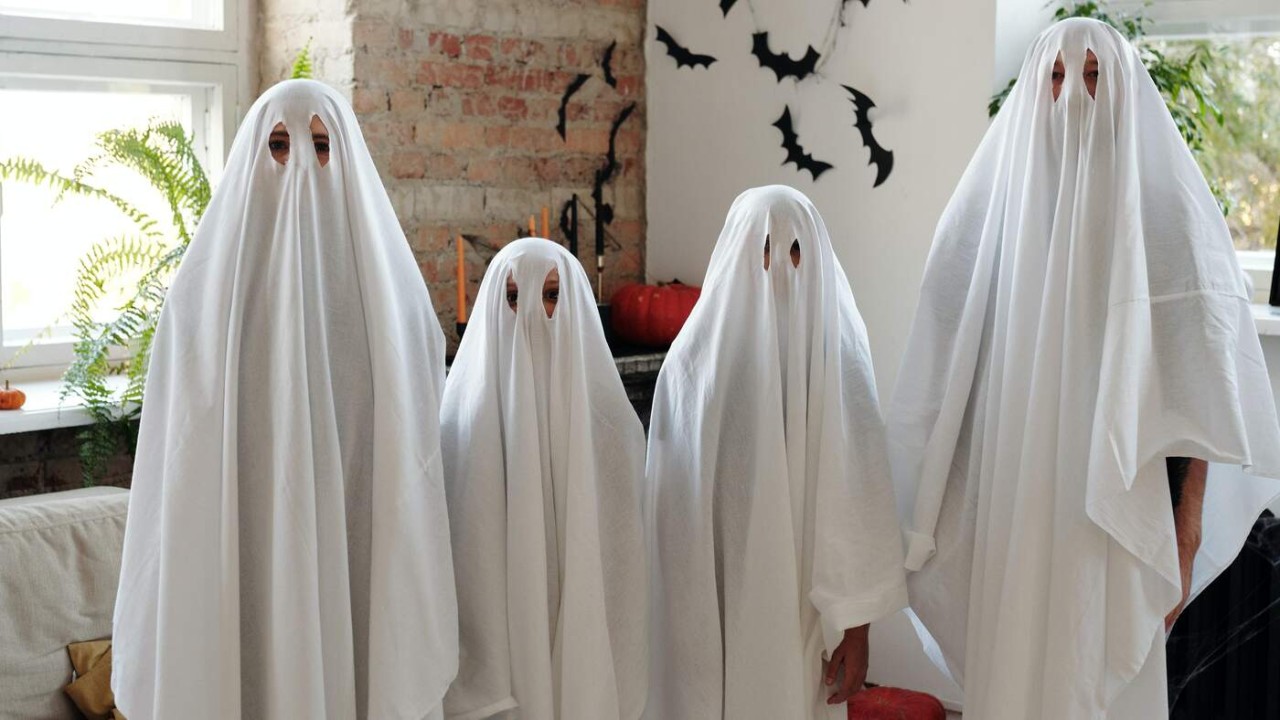

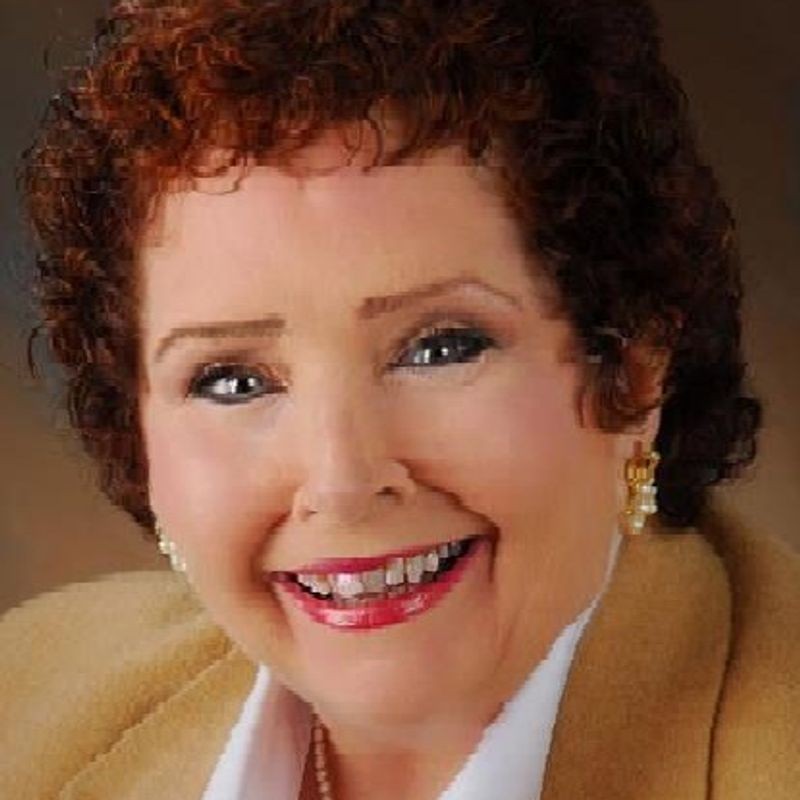
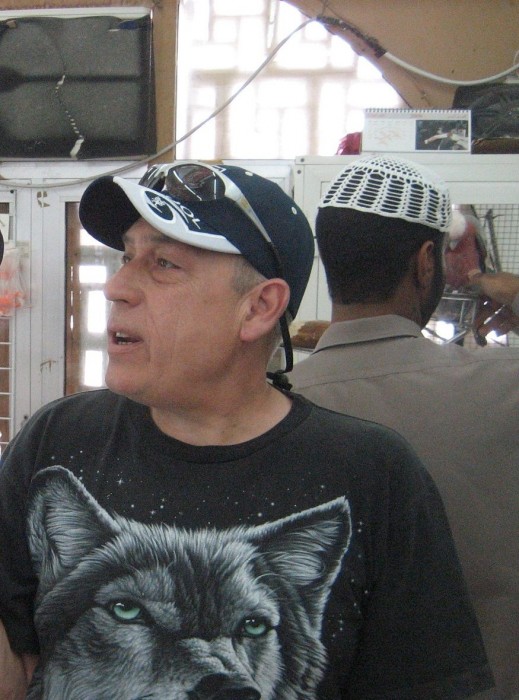

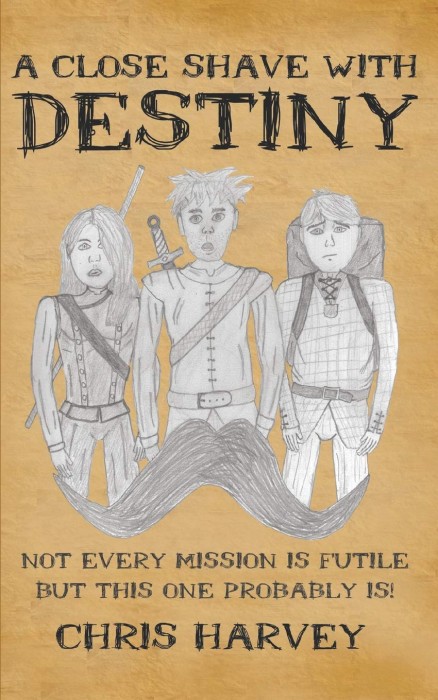


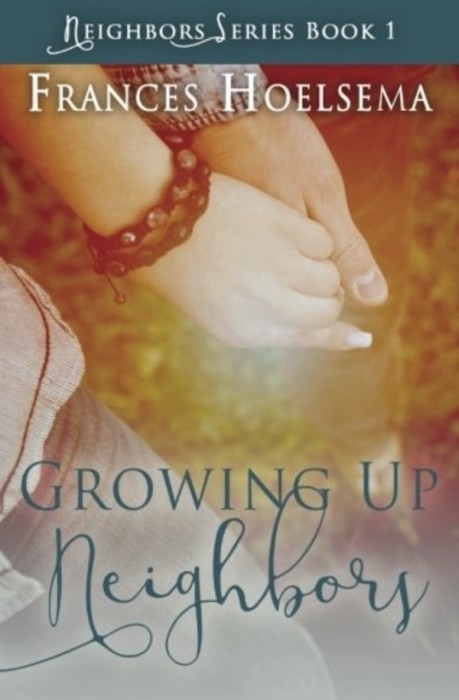
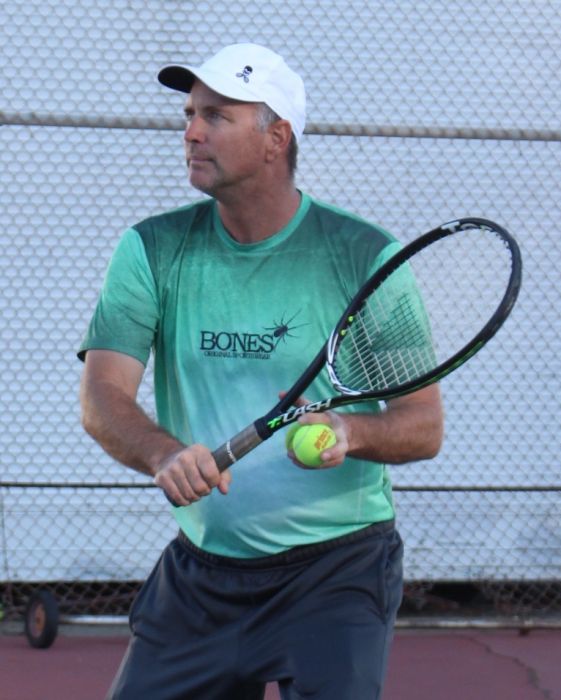
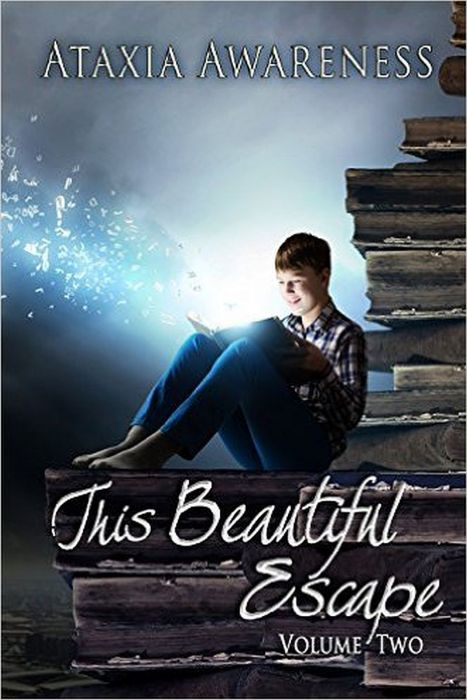
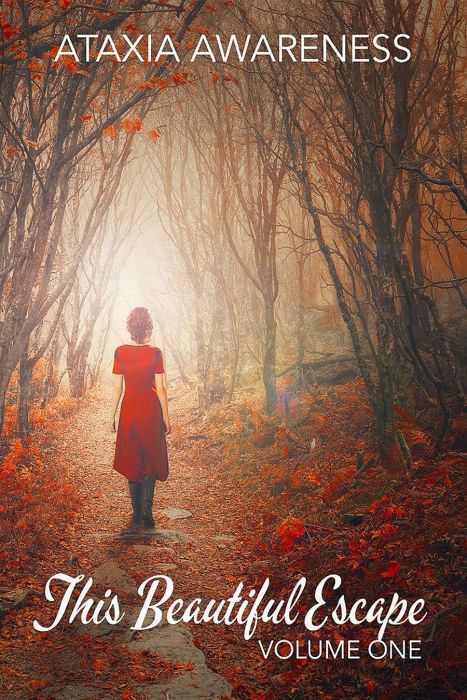
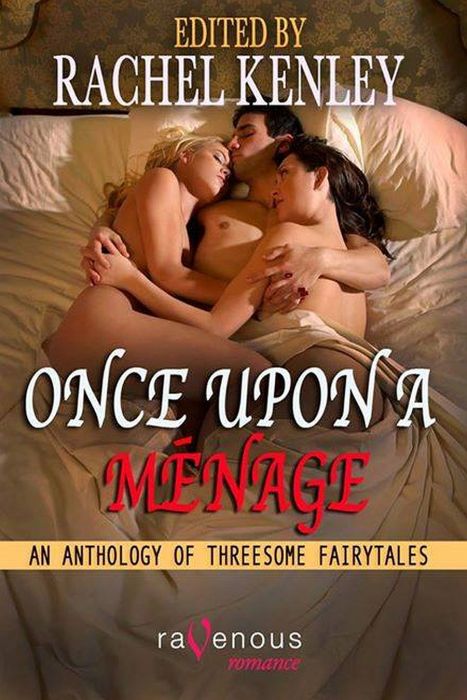
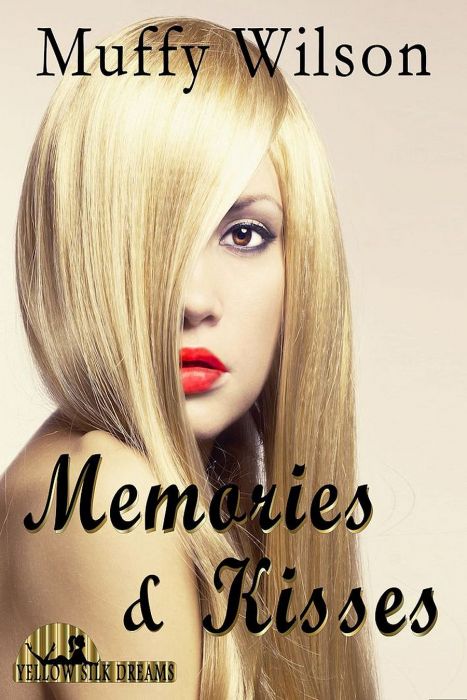
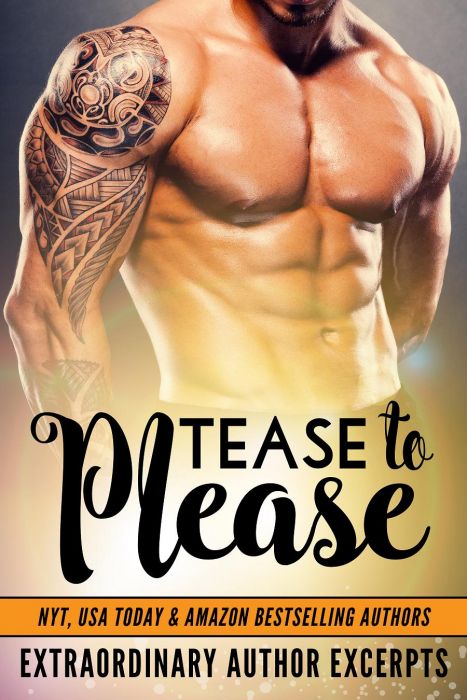
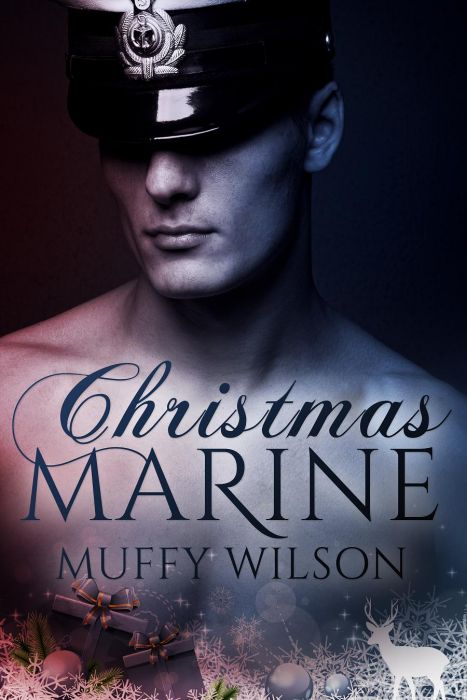

Comments